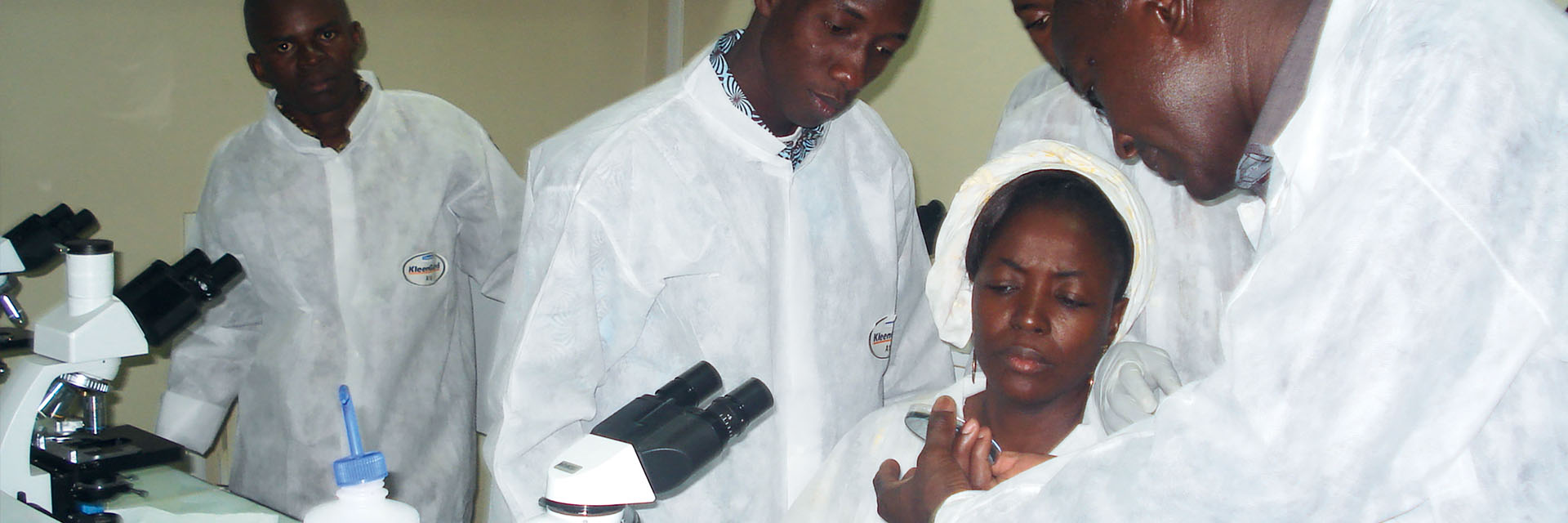Overview
- 1 Beninese employee
- RESAOLAB network member since 2013

Benin is part of the REDISSE Project (Regional Disease Surveillance Systems Enhancement) to improve disease surveillance system. Funded by the World Bank through the West African Health Organization, the project aims to reinforce health district laboratories’ capacities in the 15 ECOWAS countries, in order to:
With the Centre for International Cooperation in Health and Development (CCISD), we were mandated to reinforce health districts’ integrated disease surveillance capacities.
Benin is one of the 7 members of the West African Network of medical biology laboratories (RESAOLAB) created by the Mérieux Foundation and the ministries of health of participating countries.
In line with the objectives of strengthening the laboratory governance system, RESAOLAB contributed to the drafting of the national medical biology laboratory policy, the strategic development plan, the mapping and the national laboratory quality plan. The project also funded the construction of a building for the National Directorate of Laboratories and the National Centre for Continuing Education in 2017.
A total of 79 Beninese medical analysis laboratories were supervised and 20 were included in the external quality assessment program launched by the Mérieux Foundation.
An intensive training program in biomedical maintenance has been set up with the Ecole Polytechnique d’Abomey-Calavi (EPAC) in Cotonou through the RESAOLAB project (renovation and equipment for practical work, curriculum development). Several training sessions were organized during the project and some were financed by other partners (WHO, CDC…) thus ensuring the sustainability of the program.
Previous
Revive
Pause